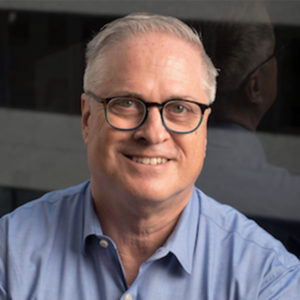As part of the 25th Commemorative Year, we will be highlighting our dedicated Board of Directors, interviewing each of them to learn more about their passion for the Foundation, how being on the Board has impacted their lives, and what they see for the future of MSF.
 Bob Witeck is President of Witeck Communications, Inc., and, for over 25 years, a pioneering communications strategist dedicated to the advancement of lesbian, gay, bisexual, transgender, and queer (LGBTQ) communities around the world. He is a communications consultant, author, speaker, and researcher. His award-winning firm is the first certified LGBT-owned business in the U.S. by the National Gay & Lesbian Chamber of Commerce.
Bob Witeck is President of Witeck Communications, Inc., and, for over 25 years, a pioneering communications strategist dedicated to the advancement of lesbian, gay, bisexual, transgender, and queer (LGBTQ) communities around the world. He is a communications consultant, author, speaker, and researcher. His award-winning firm is the first certified LGBT-owned business in the U.S. by the National Gay & Lesbian Chamber of Commerce.
On their 25th anniversary, American Demographics magazine selected Bob as one of 25 global leaders ‘who have made significant contributions to the worlds of demographics, market research, media, and trend spotting’ for his early work on America’s LGBT population. In 2006, he authored the first book on LGBT marketing, “Business Inside Out.” He was the first LGBT consultant retained in 2010 by the U.S. Census to help inspire LGBT participation in that year’s count.
Before opening his practice in 1993 with Wesley Combs, he was senior vice president for Hill & Knowlton Public Affairs. On Capitol Hill, Witeck also served as communications director for the U.S. Senate Committee on Commerce, Science and Transportation as well as a Senate press secretary and legislative assistant. He is a graduate with distinction of the University of Virginia, where he was an Echols Scholar. In 2016, he was appointed by Virginia Governor Terry McAuliffe to serve on the Board of Visitors of George Mason University.
Bob Witeck has served on the boards of the National Lesbian & Gay Journalists Association (NLGJA), GLAAD, GLSEN, and the NEA Foundation and currently serves on the Human Rights Campaign’s Business Council and the Matthew Shepard Foundation.
How has your experience as an MSF Board Member impacted you personally and/or professionally?
Not a day goes by that I forget the mission and vision of the Matthew Shepard Foundation. As a lifelong communicator, I am drawn to stories and true-life experiences. Matthew’s life and experiences were so much like my own – but simply a difference of decades. What an impact it also makes knowing Judy and Dennis and bearing witness for their family. What motivates me even more is not the pathos that swept up the Shepards; it is instead the drive that inspires change and accelerates hope. The Foundation keeps hope alive.
What do you believe has been the Foundation’s greatest achievement over the past 25 years?
The Foundation has had an indelible impact on millions of people around the world. It is extraordinary to know that our nation’s hate crime law is named after Matthew Shepard and James Byrd, Jr., both victimized by violence spurred by hate and prejudice. The Foundation also helped pioneer training among countless law enforcement jurisdictions at the state and local level to identify and enforce hate crime statutes.
While next generations may find faint, if any memories about Matthew Shepard, they will bear witness to theater, film, book, and musical tributes that help make his story and his life resonate today and tomorrow. His interment in the Washington National Cathedral also offers solace and a solemn place where all generations can reflect and remember him and the Shepard family.
What do you see as the Foundation’s greatest opportunity or responsibility as we move into the future?
All of us at the Matthew Shepard Foundation know that this work will never be finished. Our heirs, friends, family, and many generous donors will keep this memory alive and spread humanity’s values and aspirations. We always say that our job is to “erase hate,” and we know that history will shame us if we ever forget it.
